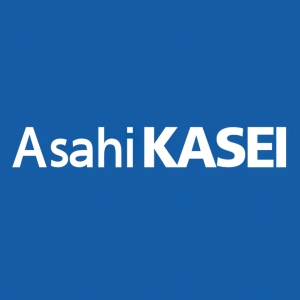Car users’ concerns to define interior of fully autonomous cars, citing 5th Global Automotive Consumer Survey by Asahi Kasei
DÜSSELDORF,

Asahi Kasei Car Survey 2023 (Photo: Business Wire)
The results of Asahi Kasei’s fifth global Automotive Consumer Survey present meaningful information about what customers in the four major automotive markets (
Distrust in technology
Car users are still conservative regarding the operation of a fully autonomous car; a retractable steering wheel and pedals are not considered valuable to most respondents. This confirms the results of the last survey from 2022, which found that even in fully autonomous vehicles, a large proportion of users in
In addition, two out of three car users in
Silent cabin for communication and listening to music
When asked about the most valued interior aspect of an autonomous car, one out of two respondents mentioned “silent cabin” (see Figure 2). This speaks to the woes of many battery electric vehicle (BEV) users; almost every fourth user of a BEV mentioned “too much noise while driving” as the most annoying aspect of the driving experience. While the BEV itself is quieter than a car with an internal combustion engine (ICE), the noise of wind, tires, gears, and motors—sounds that are typically suppressed by the engine noise—becomes more prevalent. In fully autonomous electric vehicles, and with the ability to engage with other activities while commuting, silence will even become more important for customers.
Looking at activities while riding in an autonomous vehicle, listening to music and podcasts is the primary activity of car users worldwide while driving, with
Perception of sustainability differs among regions
Car users no longer define a “sustainable vehicle” only by its drivetrain technology but also by its carbon footprint in production, easily recyclable materials, and overall sustainable production along the entire value chain. Buyers’ understanding of sustainability is growing, and the relevance of this topic in the purchasing process has increased in recent years.
Respondents in the Western markets define a sustainable car by its use of recyclable materials and sustainable production along the value chain. Meanwhile, for car users in
About the Asahi Kasei Automotive Consumer Survey
This report summarizes key findings of the fifth edition of Asahi Kasei’s annual trend survey regarding car users’ purchasing decisions and preferences related to materials and features for the future of vehicles. Conducted in December 2023 via online interviews, Asahi Kasei asked a total of 4,158 car users across the four automotive core markets:
From its first edition in 2019, the survey has been conducted in cooperation with market research institute SKOPOS from
About Asahi Kasei
The Asahi Kasei Group contributes to life and living for people around the world. Since its founding in 1922 with ammonia and cellulose fiber businesses, Asahi Kasei has consistently grown through the proactive transformation of its business portfolio to meet the evolving needs of every age. With more than 49,000 employees worldwide, the company contributes to a sustainable society by providing solutions to the world's challenges through its three business sectors of Material, Homes, and Health Care. Its Material sector, comprised of Environmental Solutions, Mobility & Industrial, and Life Innovation, includes a wide array of products from battery separators and biodegradable textiles to engineering plastics and sound solutions. For more information, visit https://www.asahi-kasei.com/.
Asahi Kasei is also dedicated to sustainability initiatives and is contributing to reaching a carbon-neutral society by 2050. To learn more, visit https://www.asahi-kasei.com/sustainability/.
View source version on businesswire.com: https://www.businesswire.com/news/home/20241211859745/en/
Europe Contact:
Asahi Kasei Europe GmbH
Sebastian Schmidt
sebastian.schmidt@asahi-kasei.eu
North America Contact:
Asahi Kasei America Inc.
Christian OKeefe
christian.okeefe@ak-america.com
Source: Asahi Kasei







